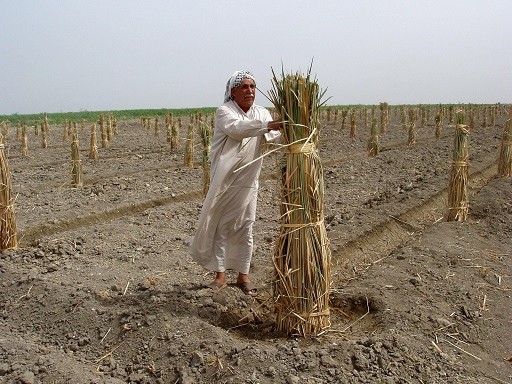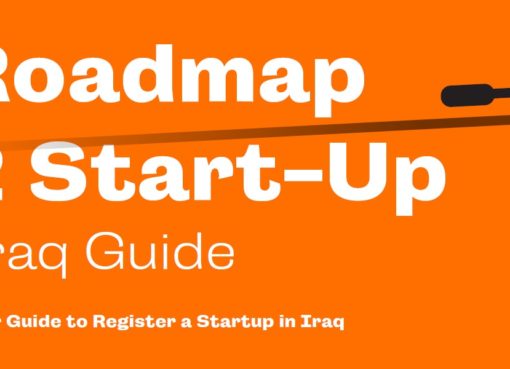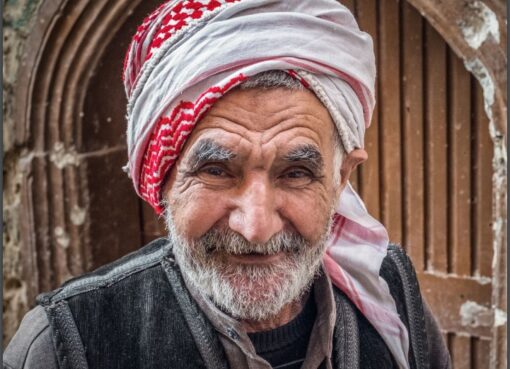Ahead of our forthcoming second report on Iraq’s water resources, we spoke with Eckart Woertz, Director at the GIGA Institute of Middle East Studies and Professor for contemporary history and politics of the Middle East at the University of Hamburg.
In 2014, Dr. Woertz published Oil for Food: The Global Food Crisis and the Middle East. A detailed analysis of the political economy of agriculture in the region, the book is filled with historical case studies as well as current analysis on regional food security. Oil for Food has become essential reading for those interested in an increasingly important topic.
In light of this, we were keen to ask him some questions pertinent to the debate on agriculture in Iraq and current questions surrounding greater private sector involvement in Iraqi farming, and the ramifications this might have under certain scenarios for production, soil quality and water availability.
IEI: You highlight in your book that in 2007, Saudi Arabia decided to phase out wheat production by 2016, in part due to dwindling groundwater reserves. This came after a major agricultural push in the preceding decades and a reorganization of government, which saw the role of the Ministry of Agriculture subordinated to the Ministry of Water and Electricity (the latter merger intended to improve coordination of energy use for power and desalination). In arid countries like Iraq, which are increasingly at risk of climate change, what do you think of the idea of phasing out a lot of crop production and instead, importing more produce?
EW: It’s important to consider that Iraq is of course a slightly more populous country than Saudi Arabia and has more agricultural potential. Iraq is of course, where agriculture was invented. We have seen this argument made in regard to wheat production, which Iraq has expanded. And people ask themselves, is it better to invest in livestock or fruit and vegetable cultivation, which might be a better alternative as they yield more value added for each drop of water spent.
In the north of Iraq, there is a higher cultivation of rain fed cereals and grains. So there are trade offs in different countries, but there is more potential in Iraq for agricultural growth. Irrigation can be done to some extent with renewable water, although there is a groundwater withdrawal issue in the past decade.
IEI: When looking at declassified Corona satellite imagery of Iraq from the 1960s and more recent images, what one might expect is to see a decline in cropland, as levels in the Tigris and Euphrates have declined sharply since the 1970s. But in some areas it is clear that you can see expansion as irrigation expands. Could we see a short term increase in green water through expanded irrigated areas? The idea of expanding irrigation to mitigate climate change is mentioned briefly in your book, in relation to Egypt, with the important caveat of worsening Nile hydropolitics.
EW: So, to be clear, green water is soil water. Depending on the agriculture you practice, if there is vegetation, it keeps water and keeps soil moisture. That’s why it’s important not to just have monocultures but also trees to retain the soil moisture. So in that sense, you can improve soil quality. But the source of green water cannot be improved by expanding irrigation– that comes from rainfall.
IEI: In Iraq the state has played a strong role in the agriculture sector for decades. Perhaps there is a danger that if privatisation is done quickly, it can actually have an adverse impact on agriculture, if support schemes are discontinued abruptly or if large scale projects are pushed through at the expense of smallholders who have only customary land rights. This seems to be one of the takeaways from your case study of Sudan’s drive to become the regional breadbasket.
EW: I’d point out that compared to the 1970s Iraq’s agriculture is actually less dominated by the state. The Public Distribution System may be a state system, but farming itself is not being dominated by the state. A risk here is that while many inputs are provided by the state, if all the subsidized input factors are taken away, farming becomes much more expensive for farmers and many of them will go out of business.
In terms of privatisation, the risk to soil quality depends really on whether they are short term leases or long term, it’s not so much a question of public or private involvement. In short term leases there is less incentive to protect soil than in long term leases. In Iraq and the wider region for example, most of it is private sector farming, they don’t have these large state farms anymore. Regarding public procurement in terms of input factors, it’s not a main issue for Iraq.
Regarding this whole privatisation question after 2003, a lot of big US agro-companies went in and tried to sell their model of agricultural development and business. They had been out of the Iraqi market for a long time due to the adverse political issues between the US and Iraq and tried to implement some interventions.
Globally, the whole privatisation narrative, since the great recession is evenless convincing than it was before.
IEI: So when we look at MENA states, in particular those with significant oil revenues, perhaps the best thing they can do for greater efficiency with water is to do things like lining irrigation canals, distributing drip equipment etc. That comes with a cost, but perhaps should be the main line of effort in terms of saving water?
EW: The issue with drip irrigation is that it makes water use more efficient, but it doesn’t necessarily save water if they use the efficiency gains to expand production. In Morocco and Israel, water consumption has actually increased after the introduction of drip irrigation. It’s not a silver bullet. Ultimately they simply need to limit production if they want to limit water consumption, consume less or plant less, so the question is, what crops and what non-agricultural economic activities are they using their water resources for.
IEI: The former Saudi minister of trade once said there were 19 types of rice, but it’s not compulsory for people to eat the most expensive type. Iraq has had a difficult relationship with rice production in recent years, particularly following the Ilisu dam filling in mid-2018 when the level of the Tigris suddenly declined and Iraq briefly banned rice cultivation. This caused anger among farmers, particularly those growing the favoured Amber rice. Should governments be tougher on cultivation of water intensive crops?
EW: Rice is very water intensive, so is naturally the focus of attention when it comes to saving water supplies. Here it is worth pointing out that Jasmine rice is mainly produced in India and Pakistan, so they can substitute it, if Iraq has the oil to pay for it. It seems like Iraq is trying to change the production mix and move away from some water intensive crops, but they have expanded wheat production, which is also quite water intensive.
IEI: Is there a particular case study from the MENA region, either in terms of public or private sector management of the agriculture sector, that you would point to as being particularly successful?
EW: All agriculture in the region is mainly being done by the private sector. We don’t have these big state farm experiments that Iraq or Syria had in the 1970s. PDS is a case where the presence of the state is very prominent and even in Egypt it is still a substantial system, but even this doesn’t compare with Iraq where the PDS is the largest system of its kind in the world, although it is supplied by the private sector.
IEI: What happens if you pull away that system or convert it into a cash grant?
EW: A lot of farmers might go bankrupt. In terms of the consumer subsidies of the PDS they have reduced the number of subsidised goods, but wheat/flour is still subsidized. Subsidizing the on the consumer and producer side alike, that’s something you can only do with considerable oil revenues. Poorer states in the region do not have that option.
Source: Iraq Energy Institute August 27, 2020
Iraqi farming and privatisation: an interview with Eckart Woertz








Comment here